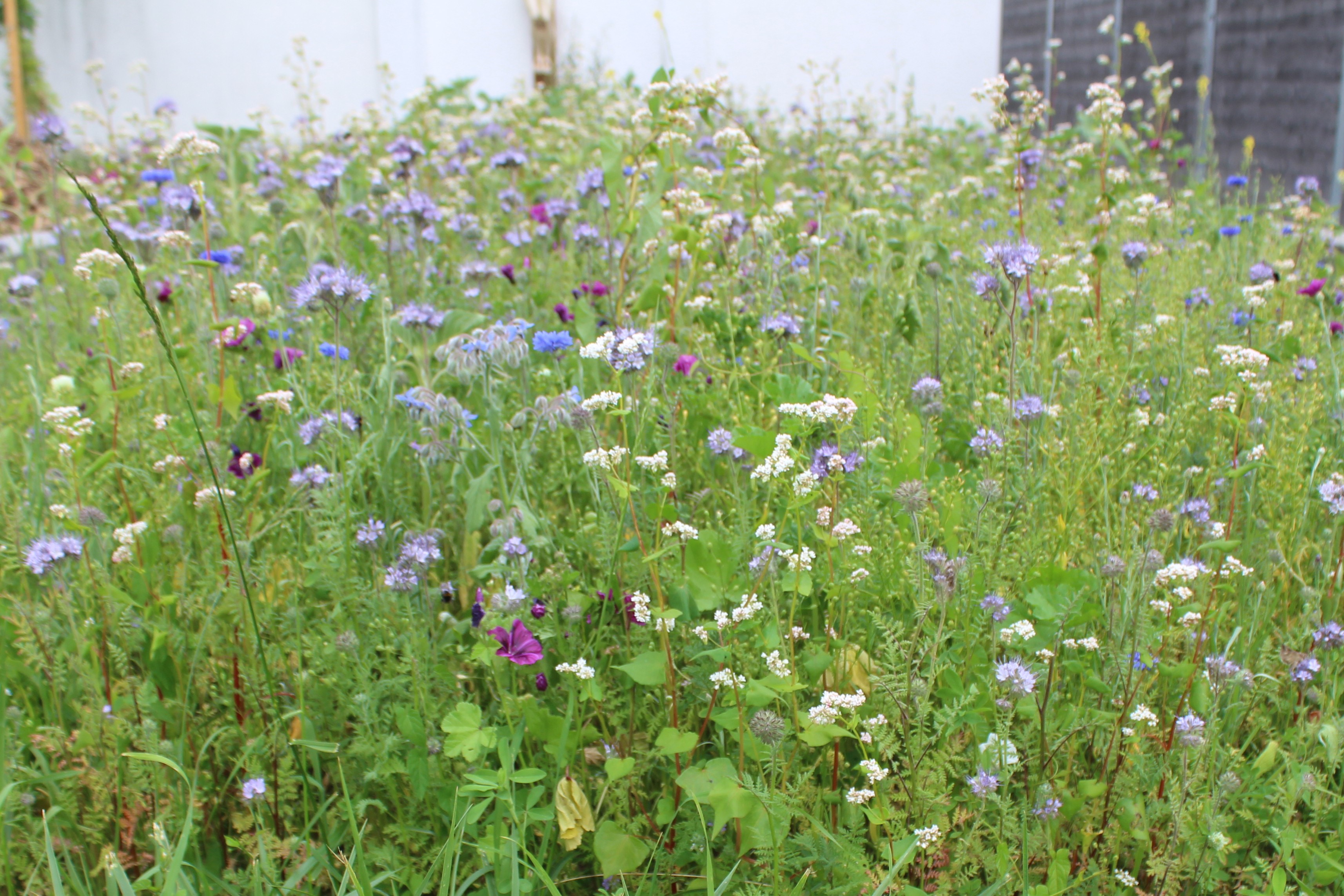5 to 6 July 2018, Straubing, Germany

Full bloom during the time of the SMIBIO Meeting in Straubing
On 5 and 6 July 2018, the SMIBIO consortium met in the city of Straubing for the last time during the SMIBIO project. One day before, on 4 July 2018, the 4th SMIBIO workshop was held in the premises of Technology and Support Centre (TFZ). The meeting was organized by Ingo Ball, WIP Renewable Energies, in cooperation with Klaus Thuneke from Technology and Support Centre (TFZ).
The meeting started in 5 July 2018 with welcome words by SMIBIO project coordinator Francisco Gírio, who first revised the agenda and then gave a short outlook for the activities until the project end in October 2018.
The meeting proceeded presentations about the last developments for each business case that were achieved in last 6 months. Presentations about the status of the biorefinery concepts were given by Ingo Ball (WIP, Germany), Ana Isabel Susmozas (CIEMAT, Spain), Tiago Lopes (LNEG, Portugal), Alfredo Martinez (UNAM, Mexico) and Carlos Cardona (UNC, Colombia). Germán Aroca and Julian Quintero (PUCV, Chile) participated in the meeting via video conference. Pedro Azevedo (LNEG, Portugal) concluded the presentations with information about solar integration in the biorefinery processes.
All case study presentations are currently project internal documents and available on the project intranet.

Ana Isabel Susmozas (CIEMAT), discussing with colleages from the SMIBIO consortium
On 6 July 2018, the meeting continued with a discussion about administrative issues. The working plan for the time until the project end was then scheduled and agreed between the project partners. Regarding the disseminiation of SMIBIO project results, the project partners were invited to participate in the 4CIAB conference in October 2018 in Jaén (Spain). Francisco Gírio then officially finished the last project meeting and thanked all project participants for the work that has been delivered. Finally, Ingo Ball also thanked all project partners for the good work in Straubing and specially thanked Klaus Thuneke (TfZ) for the excellent cooperation.

Participants of the meeting (from left): A. Martinez, R. Janssen, T. Lopes, F. Gírio, I. Ball, P. Azevedo, J. Hilbert, C. Cardona, D. Rutz and J. Netto
Side Events
The 6th SMIBIO General Meeting was accompanied by two visits of companies in Straubing, that are already realizing sustainable processes which are also part of the SMIBIO case studies.
On 5 July 2018, the SMIBIO consortium visited the bioethanol demo plant of Clariant ( https://www.clariant.com/en/Business-Units/New-Businesses/Biotech-and-Biobased-Chemicals/Sunliquid ) which is located close to Straubing. The consortium was welcomed by Bjoern Huehnlein from Clariant, who informed about the sunliquid® technology that Clariant has developed to sustainably produce cellulosic biofuels.

Clariant plant in Straubing-Sand from outside
The process is capable to reach high sugar yield through feedstock and process specific enzymes. Furthermore the process is special as it contains a process-integrated enzyme production and simultaneous C5 and C6 fermentation. To make it more sustainable, the sunliquid® technology also integrates energy-saving separation technology in the process. During the presentation, Bjoern Huehnlein, answered the many questions of the SMIBIO participants, who are in many cases experts in bioconversion technologies, thus giving the presentation the character of an experts' talk. At the moment, the plant is running in demonstration modus and is capable to produce 500 - 1,000 t ethanol per year. However, Clariant just announced the construction of two large scale industrial ethanol plants using the sunliquid® technology in Slovakia and Romania. The feedstock is 100% wheat straw.
After the introduction, the demo plant was visited. All technological devices, which are mostly devices that are already used in other industries today and were adapted for the sunliquid® technology, for the process steps could be seen during the tour and raised questions were answered directly by the very good host and Clariant representative Bjoern Huehnlein.

The SMIBIO consortium at Clariant plant
On 6 July 2018, the SMIBIO consortium visited the Karmeliten Brewery in Straubing. Despite the excellent beer that is produced there, this visit was mainly organized because Karmeliten Brewery ( https://www.energie-autarke-brauerei.de/#idee ) has realized many different measures, which altogether make it an outstanding example for energy efficiency in an industrial environment.
The SMIBIO project partners were welcomed at the brewery site by the Brewery Director Christoph Kaempf, who showed the visitors the energy efficiency measures that have been realized so far in the brewery. Karmeliten Brewery aims to be energy self-sufficient by only using the energy that can be generated within the brewery's area. The measures include the use of a micro gas turbine which provides a big part of the electric energy and lowers the carbon footprint. This is completed by the use of solar energy for electricity generation and for thermal energy. Furthermore, by storing the (natural) cold and by technically generating cold (so called Ice Age - producing snow with a snow lance to cover an array of cold exchangers to which the melting snow is providing the cold), the energy consumption of compressors can be reduced. Also, energy from sewage is recovered and to complete the measures, a biogas plant will be erected on the brewery's area. Altogether, the measures will make it possible to reduce the carbon footprint by 99.6 %.

C. Kaempf (second from right) explains the function of the so-called Ice Age Technology to the SMIBIO consortium
Christof Kaempf also showed the many steps of the bottling line and invited the visitors to taste the local production, which all participants rated very good. The visit at Karmeliten Brewery led to many discussions about the different measures, as the project partners come from different parts of the world and the local necessities might either be perfect or different in their country. The visit of Karmeliten Brewery and the inspirations that could be taken away were the last official activity of the SMIBIO meeting in Straubing.

The SMIBIO consortium after the visit at Karmeliten Brewery



